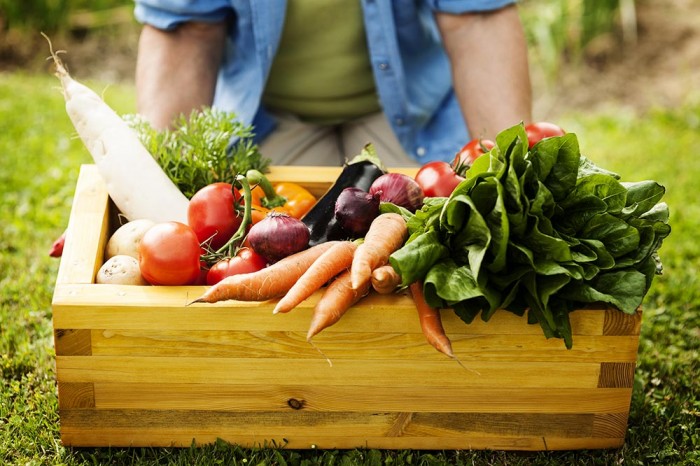
You Are What You Eat: The Power of Vegetables for Radiant Health – Part 1
Joel Peterson – Level 5 Personal Trainer Apple Athletic Club
Sometimes ‘sayings’ become repeated so many times we don’t stop and think about what they are really saying. “You are what you eat” is one that too many times gets glossed over without giving it much thought. But what are we if not what we eat?
Everything we eat becomes us in one way or another. Every day we lose a billion or more cells that need to be replaced. Each cell is a living thing that need living food to be complete and healthy. Our bodies regenerate daily and a total generation is done every seven years, including bones. Skin is new every twenty eight days. Blood is new every sixty days or so. So, truly, what you eat today is going to determine the quality of these new cells, ergo, your new body, ergo, YOU.
The condition of these cells will determine the condition of your immune system and resistance to disease. If you eat live wholesome food you will create a live wholesome body. If you eat mostly dead, devitalized food you will create a body that is prime for diseases of all sorts, ie, cancer, heart disease, diabetes, dementia, leaky gut syndrome, bleeding gums and so on.
We only have one body and one life to live and there are many forces beyond our control that affect us in many negative ways, but one thing we have control over is what we put in our mouths, on our skin and in our lungs. No one can force you to eat garbage or smear toxic chemicals on your body. You and you alone have control over this most important part of you – and who you are and will become. So let’s take control today, NOW of our choices. After all, “you are what you eat”.

Why Vegetables Should Play Center Stage
More than 60% of Americans are overweight. The amount of money spent on weight loss continues to soar, but is having little effect in curbing excess weight’s contributions to poor health. To restore vibrant health and lose excess weight, my suggestion is, “Eat more vegetables!”
“Eat your vegetables” is probably the most famous advice in all of nutrition – but we seldom stop to think about what makes vegetables so special or why we need so many each day.
Since everything we do requires nutrients, the more nutrients we can get for the least amount of calories bodes well for our good health and potential for healthy weight loss. Whether we are awake or asleep, exercising or sitting still, we are staying alive with the help of the nutrients required for our cells to metabolize. Although some nutrients can be stored in our cells and tissues to a limited degree, most micronutrients cannot be stored. Unless we obtain them daily from our food, we simply don’t have them!
The variety of nutrients we need for optimal nourishment is somewhat staggering: we must have numerous vitamins and minerals, plus proteins, carbohydrates and essential fats, and literally hundreds of phytonutrients (including carotenoids like the lycopene found in tomatoes, and flavonoids) to stay optimally healthy.
Vegetables provide us with an unprecedented array of nutrients. As startling as it might sound, no essential nutrient is missing from vegetables as a group! Proteins, fiber-rich, low glycemic load carbohydrates, essential fats, vitamins, minerals – all are plentiful in the world of vegetables. And so are phytonutrients, health-supporting compounds found only in plant foods. Researchers estimate that at least 10,000 phytonutrients in vegetables will someday be cataloged and understood. Dozens of health-supportive phytonutrients – featuring antioxidant, anti-inflammatory, and other properties – have already been identified in all commonly eaten vegetables. Sometimes these one-of-a-kind nutrients have even been named after the vegetables themselves; spinasaponins in spinach and celerin in celery are great examples.
The list of nutrients packed inside vegetables includes antioxidants like vitamin C and beta-carotene, which play such a key role in immune support and in protection of cells and blood vessels. Also included in concentrated amounts are B-complex vitamins like vitamin B6, biotin and folate. These B-complex vitamins are essential for energy production, proper formation of red blood cells, and healthy nervous system function.
Amply supplied by the green leafy vegetables are minerals like calcium, magnesium and potassium, which are essential for healthy blood pressure and strong bones. Alongside of these vitamins and minerals are abundant amounts of fiber, which helps regulate digestion, stabilize blood sugars, and facilitate weight management. Because many of the above nutrients are not stored in the body in appreciable amounts, and because vegetables aid in the very process of digestion, foods in this remarkable group need to be consumed in generous amounts on a daily basis.
You actually have to hunt in order to find nutrients that are very difficult to obtain in ample amounts from vegetables. Vegetables even supply the omega-3 fat called alpha linolenic acid, but the omega-3 fatty acids, EPA and DHA, and certain amino acids are better supplied by other types of foods. For overall nourishment though, you can’t beat vegetables.
And as for weight loss, vegetables as a group, with the exceptions of starchy vegetables such as potatoes and corn, are the foods that are not only among the most nutrient-rich, but are also the lowest in calories.
Last week we pointed out how exercise is good for our skin and complexion. Now, let’s complete that circle.
